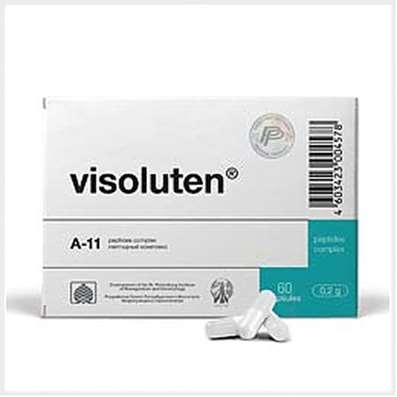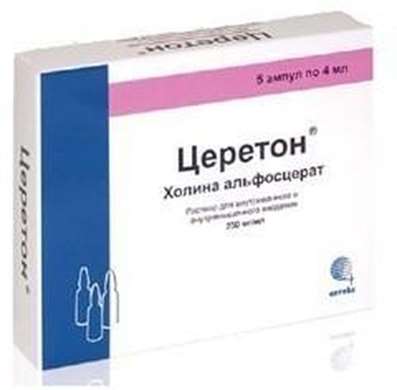Abdominal surgery
02 Dec 2016
Surgeon Dr. Doping tells about division by emergency and planned surgery, the most common operations and the history of surgical instruments.
The abdomen - it's belly. Accordingly, abdominal surgery - an operation on the abdominal organs. Abdominal organs - that is all that is from the diaphragm to the pelvis. Accordingly, all found in the digestive organs of the abdominal cavity. In addition, we consciously feel about another part of the authorities, who are in the retroperitoneal space - is the kidney, pancreas. Furthermore, the pelvic organs - a uterus, appendages in women, prostate in men bladder. So it's a huge amount of vital organs, which provide our peaceful existence.
Abdominal surgery is divided into emergency and planned. With emergency surgery all probably familiar with. Most hospitals performing surgery on an emergency basis, all first aid and hospitals accept patients. It's no secret that most private diseases are: acute pancreatitis, acute appendicitis, cholecystitis, intestinal obstruction, incarcerated hernia, bleeding from duodenal ulcers and stomach. Accordingly, this group of diseases, which I have described, which arise suddenly, just in those patients who are filling up most of the emergency rooms and operating the hospitals involved in emergency surgery in the abdominal cavity.
Do not forget about the injury, which is related to exceptional occurrences, catastrophes, leading to damage of the abdominal cavity, to the intra-abdominal bleeding, and without immediate surgery is inevitable ruin. Accordingly, a large number of patients arrives daily at various hospitals. This is probably the main contingent, and a larger percentage of transactions in most general hospitals - is emergency surgery.
Planned operations. What it is? That can wait, you can explore. This gastric disease, duodenal ulcer disease, chronic. Liver disease, tumors, metastatic lesions. Disease and intestinal tumors in most cases. In this situation there is no urgency. But if we do not remove the diseased organ, the tumor will continue to grow, there may be metastases in other parts of the body, and the patient, unfortunately, is no future for radical treatment. Therefore, elective surgery involves correction of those diseases that do not happen quickly, but prolonged their existence will lead either to a deterioration in the quality of life, or to a reduction in its duration. To improve immune system and the quality of our life - buy Meldonium, Prednisolon, Peptides (Cytomax) Bonomarlot, Vladonix for prevention cancer.
Therefore, elective surgery can be divided into surgery in the abdominal cavity in benign diseases. What is most often done for benign diseases? This gastric ulcer and duodenal ulcer. It is true that in the past was much more of these operations. Now there was a drug therapy, so the frequency of these operations has decreased significantly. Benign tumors of the gastrointestinal tract, liver, duodenum, stomach, small intestine and colon surgery subject. With regard to malignant diseases. One of the major problems of our society - a malignant disease. Not yet found ways of treating malignant diseases without surgery. Yes, there are a number of diseases that are cured by chemotherapy, but this applies mainly to hematologic diseases. When we talk about cancer of the abdominal cavity, the only option is radical - it is removing them. Therefore, in most cases, this is accomplished in oncology institutions in the oncologic dispensary or in the hospitals, where there is a license to cancer care. Cancer care requires a holistic approach: in addition to the operations required chemotherapy, radiation therapy, that is, a scalpel is not enough. What is the difference between benign from malignant disease? That benign do not give metastases, rarely progresses. Malignant tend to recur, to metastasize, ie screenings tumors in other organs. So now the direction of scientific research - is the search for effective drugs to stabilize or, on the contrary, recourse cure these tumors in combination with surgery. Therefore, a single operation is not enough, it supplemented by chemotherapy, radiotherapy, chemoradiotherapy, that is, using combined methods of treatment.
If we talk about specialization within the abdominal surgery, ie the abdominal cavity, the recently observed specialization even within the abdominal cavity. In particular, surgery of the liver, pancreas and biliary tract require special preparation, and it is called, hepatologists, surgeons, hepato-pancreatobiliary surgery. Surgeons performing surgery on the stomach, esophagus, intestines, called the surgeons, gastroenterologists. Those doctors who are engaged in operations on the colon and rectum are called Coloproctology. And each of this profession is very serious and requires very serious skills, so they are isolated within the abdominal surgery. Now it is to be a universal surgeon heavier and heavier. Yes, in emergency surgery, we have no other choice. It is necessary, when damaged many organs or emergency situation, to operate all. But when we talk about complex diseases, cancer or benign lesions of the abdominal cavity, depending on their localization is very clearly specialize everyone who is engaged in one or another section of abdominal surgery.
Abdominal surgery is quite young Surgery, because associated with the introduction of anesthesia, with the understanding that such an infectious process after surgery, therefore, to perform operations on the abdominal organs (this abdominal surgery) began only in the second half of the XIX century. Why? Because it is at the end of the first half of the XIX century, in 1848, the famous American dentist Morton proposed using ether anesthesia. With ether patient medical immersed in a dream. And with anesthesia, disconnection of consciousness and pain sensitivity, the opportunity to perform in such difficult areas. Prior to that, no one could touch the abdominal cavity, so the operations are performed in historical perspective on the limbs. Yes, sporadic operation, that is random, but it can not even be called an operation. Clearly, combat injury, the field of battle, the front abdominal wall is injured, guts out - they do then? All the submerged inside, and if the patient was not fortunate and penetrating internal injuries and abdominal bleeding, some of them survived. And wholly mortality, that is, all died until such time as surgeons have not learned somehow to anesthetize a person - and this opportunity came just in the middle of the XIX century, and boldly could be under anesthesia introduced into the abdominal cavity, to sew up wounds . Therefore, the first operation, if we talk about liver operations began in 1871, when on the battlefield German military surgery Bruns first sewed liver injury and the patient, wounded soldier, survived. This is the first written record about the operation of the liver.
By the end of XIX century there were operations on the stomach. Everyone is familiar with such names as Billroth, Roux, Kocher, because we still carry out operations under their names, for example: gastric resection Billroth I, Billroth II or bowel resection, isolated intestine loop by Roux, Kocher maneuver. That is, many methods are still used around the world, called the names of those surgeons who at the end of XIX - early XX century proposed a certain operation. They could never do that, if there was no anesthesia.
In addition, the introduction of asepsis, antisepsis, ie decontamination of instruments and surgical field, which introduced the English surgeon Lister at the end of the XIX century with the help of carbolic acid - a poison, we say, but then it saved hundreds of lives. Prior to that, there is nothing decontaminated surgeons believed that the dirtier the hem of the surgeon and his surgical coat, so he is more experienced. And many patients die from hospital-acquired infections, called nosocomial fever, and is nothing more than an infection.
Very important was the discovery of penicillin by Fleming. In 1943, Americans began to use the antibiotic on the battlefield, and hundreds of thousands of victims were rescued with the help of antibiotics is in wounds of the abdomen. And of course, without a parallel open surgery could not be developed, so to achieve in other areas are widely allowed to develop heart surgery, in the 50s there were heart-lung machine. The discovery in the field of immunology and survival of tissue transplantation has allowed to develop successfully. Neurosurgery is now at a very high level, because besides knowledge of the neurophysiology of pain relief during surgery on the brain are now allowed to perform unique operations to remove tumors from remote areas.
Besides, now increasingly incorporated minimally invasive technology. What it is? This implementation of major surgery, but because of the small access using video-surgery: laparoscopy, robotic surgery. That is often when talking about robotic surgery, the surgeon sits outside of the surgical field, the console, in the form of 3D, he sees the surgical field and can absolutely precisely, that is, with great precision, to intervene surgically in the distance. It is theoretically possible from a different city to carry out these operations.
Thus, the prospects of abdominal surgery is very interesting. They relate primarily to the introduction of new minimally invasive technologies, when this technique allows from small accesses to remove large pieces that have demanded more access, with a large increase and, consequently, with fewer complications. This is a quick rehabilitation of patients after surgery and rapid inclusion in the public process after seemingly complex operations such as liver resection, the removal of the pancreas. I'm not talking about the other operations, such as the esophagus, stomach and so on.
Thus, the opening in the adjacent areas of scientific achievements in other areas: in low-temperature physics, high temperature, robotic engineering, anesthesiology, critical care medicine, pharmacology - allow surgery, particularly abdominal and achieve greater heights and achieve success in those cases where, for example, a few years ago it was impossible to achieve effective treatment of a disease.

 Cart
Cart





